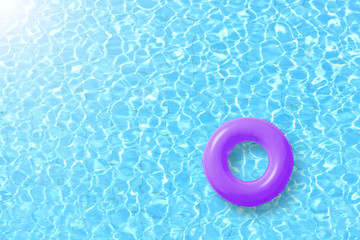
A backyard swimming pool is a fun way to cool off during the scorching summer months, but it can be a liability.
According to the Centers for Disease Control and Prevention, there are approximately 7.4 million swimming pools in homes, backyards, or public areas across the country. With water activities being one of the most popular ways to stay cool in the summer, it's no wonder kids and adults alike flock to that attractive blue water.
However, there are over 3,400 unintentional fatal drownings each year in the country, and one in five of those involves a child under the age of 14. If you own a pool, or set one up for kids to play in your backyard, you are opening yourself and your home up to a mountain of liability. Keep reading for some safety tips.
Does Homeowners Insurance Cover Swimming Pools?
Yes, homeowners insurance can cover a swimming pool. However, not all insurance companies will cover swimming pools and an insurer may require you to take steps to minimize your risk when it comes to your pool, like fencing it in and add safety features. In general, the best way to cover your swimming pool is not with pool insurance, but by working with an insurance agent to find homeowners insurance coverage that will also cover your pool or an umbrella policy. We will be happy to help you here at S.E. Benchmark Insurance Agency.
What Is An Umbrella Policy?
An umbrella policy provides extra liability coverage, in this case, to your homeowners policy. Umbrella insurance covers not just the policyholder, but also other members of their family, guests or household.
Swimming Pool Safety Tips:
- It is important to maintain secure fencing and a locked entrance around the pool and deck area to prevent access when adequate supervision is not available. Install self-closing and self-latching gates in the proper locations.
- Make sure no one swims alone. Never leave a child unattended in the water or pool area, and see that less experienced swimmers are always accompanied by a swimmer who has water life-saving skills.
- Equip your door, gate or pool with an audible alarm to alert you if someone enters the pool area or falls into the pool while it is unattended.
- Diving should be prohibited unless a specific area of the pool is designated for safe diving. Water depth and diving-restricted areas should be clearly marked.
- Make sure there is adequate life-saving equipment in the pool area, including life preservers and a rope with life-saving rings, a reaching pole or rescue hook.
Pool Maintenance Tips:
- Keep chemicals safely stored away from the pool area. Follow all storage and usage instructions recommended by the pool chemical manufacturer.
- Be sure electrical devices, including outdoor entertainment systems, are away from pools or wet surfaces. When using electrical devices outdoors be sure to plug them into a GFCI (ground-fault circuit interrupter). Keep the pool area clear of glass bottles, toys or other potential accident hazards.
- Inspect the liner regularly as rips and tears can appear undetected at the top of the lining. Check for signs of wear and tear in areas where pipes or other items may have penetrated the liner (e.g. skimmers, hoses, etc.).
- For above ground pools check metal supports for rust or deterioration. These may indicate areas where the pool could rupture or a person could be injured.
- Check the deck for safety hazards (e.g. protruding nails, loose boards, etc.).
- Check the pool stair handrails and deck railing to ensure structural integrity from someone leaning or grabbing it.
- Ensure your pool has compliant anti-entrapment drain covers and inspect them regularly to confirm they are not broken or missing.
Enjoy your summer! Stay safe. Stay protected.